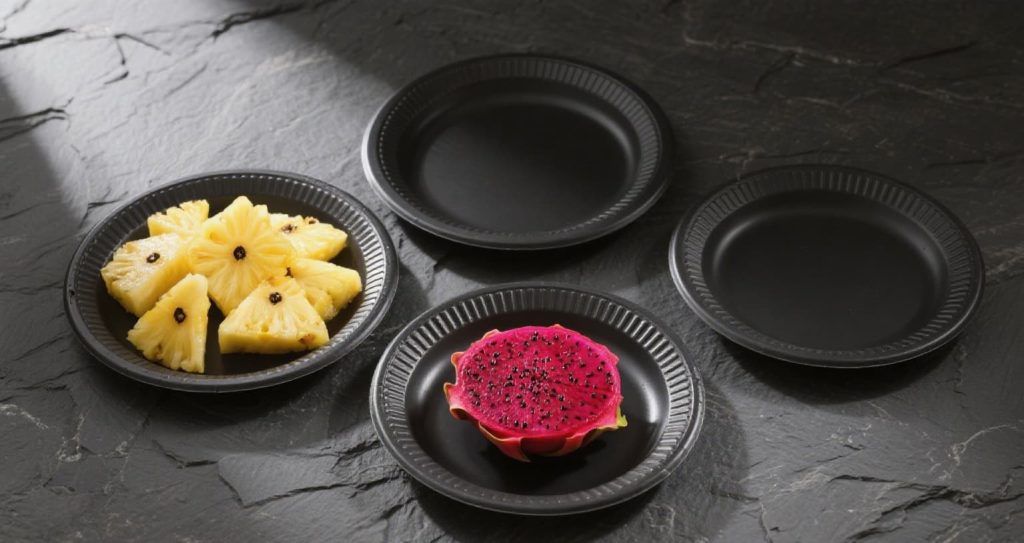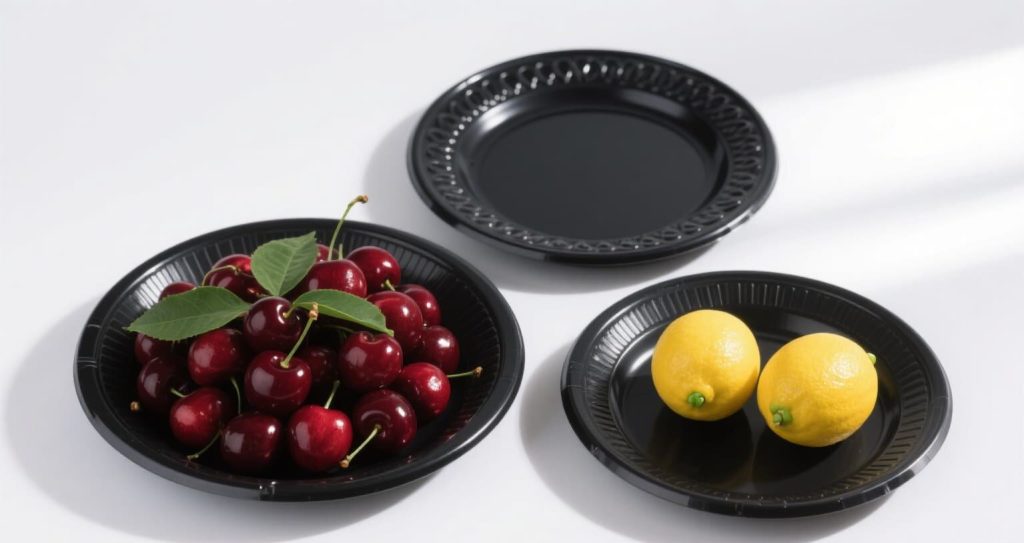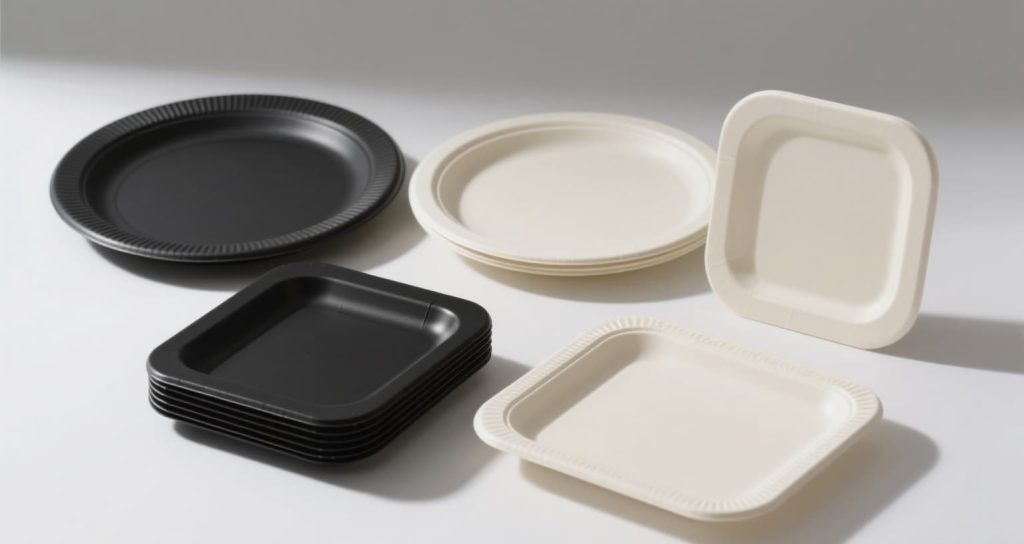Polypropylene (PP) is quickly becoming the go-to material for food packaging across global markets. Among its many applications, PP plates stand out as a top choice for food service businesses—from restaurants and cafeterias to takeout chains and catering companies. But why are so many brands switching to PP plates? Let’s take a closer look.

🔍 What Is a PP Plate?
A PP plate refers to a disposable or reusable food tray made from polypropylene (PP)—a lightweight, semi-rigid plastic widely known for its excellent heat resistance, chemical stability, and food safety. These plates are designed to serve a wide range of hot and cold meals, including:
- 🍛 Hot lunches and rice dishes
- 🥗 Fresh salads and fruits
- 🍰 Bakery and dessert selections
- 🍜 Noodle-based meals

🧪 Scientific Benefits of PP for Food Packaging
Polypropylene offers a unique balance of safety, performance, and affordability. Here’s why PP plates are in high demand:
| Property | Benefit |
|---|---|
| 🍽️ Food-Safe | BPA-free, non-toxic, and compliant with FDA and EU food contact regulations |
| 🔥 Heat-Resistant | Can handle temperatures up to 120°C—ideal for hot meals and microwave reheating |
| 🧊 Cold-Resistant | Performs well in freezing temperatures without cracking |
| ♻️ Recyclable | 100% recyclable under Resin Identification Code “5” |
| 💪 Durable | Impact-resistant and not easily deformed under weight or heat |
🌱 Sustainability of PP Plates
Though PP is a petroleum-based plastic, it is widely recyclable and less energy-intensive to produce compared to many alternatives. PP plates can also be reused multiple times before recycling, making them a lower-waste solution in food packaging.
Moreover, many PP plates—especially those from advanced manufacturers like Xiamen Dashan—are designed for monomaterial recycling, helping streamline waste management for food service providers.
🏭 Application in the Food Industry
From fast-food chains to airline meal trays, PP plates are everywhere. Here’s how they’re being used:
1. Meal Prep & Delivery
PP plates are microwave-safe, leak-resistant, and ideal for reheating—making them a staple in meal delivery services and ghost kitchens.
2. Buffet & Catering
Their strength and clean presentation make them perfect for events, parties, and catering services that demand hygiene and efficiency.
3. Retail Packaging
Many supermarkets use PP trays for ready-to-eat meals, sushi, and deli items due to their visibility, safety, and low weight.
🏢 Why Choose Dashan’s PP Plates?
At Xiamen Dashan, we specialize in high-quality PP food packaging, including customizable PP plates that meet global safety and branding requirements. Our PP plates are:
- ✅ ISO, QS, and NSF certified
- 🛠️ Customizable in shape, color, and compartment design
- 🌍 Exported to 100+ countries
- 🧪 Made with virgin or food-grade recycled PP
- 📦 Available in bulk, with efficient global shipping options
Whether you need single-compartment trays or multi-compartment plates for combo meals, Dashan delivers food packaging that matches your operational needs and sustainability goals.

💬 FAQ About PP Plates
Q1: Are PP plates microwave-safe?
✅ Yes, PP can withstand microwave temperatures without warping or leaching chemicals.
Q2: Are PP plates reusable?
♻️ Yes, many PP plates are reusable and dishwasher-safe, especially those with higher thickness.
Q3: How do PP plates compare to PET or PLA?
PP plates have higher heat resistance than PET and PLA, making them more suitable for hot meals and reheating.
🧾 Conclusion
PP plates offer the perfect combination of durability, safety, and sustainability for modern food packaging needs. As consumers demand more practical and eco-conscious options, PP continues to rise as a smart, scalable solution.
For food businesses seeking reliable and customizable PP plate suppliers, Xiamen Dashan stands ready with expert support, competitive pricing, and global delivery.
📚 References
- U.S. Food and Drug Administration (FDA) – Use of Recycled Plastics in Food Packaging
https://www.fda.gov - PlasticsEurope – Polypropylene (PP): Properties, Uses & Sustainability
https://plasticseurope.org - European Commission – EU Regulation No. 10/2011 on plastic materials intended to come into contact with food
https://eur-lex.europa.eu - ScienceDirect – Polypropylene in Packaging Applications
https://www.sciencedirect.com/science/article/abs/pii/S0142941816305794 - RecyClass – Design for Recycling Guidelines: PP Trays & Containers
https://recyclass.eu/recyclability/design-for-recycling-guidelines/ - Packaging Digest – The Benefits of Polypropylene in Food Packaging
https://www.packagingdigest.com
